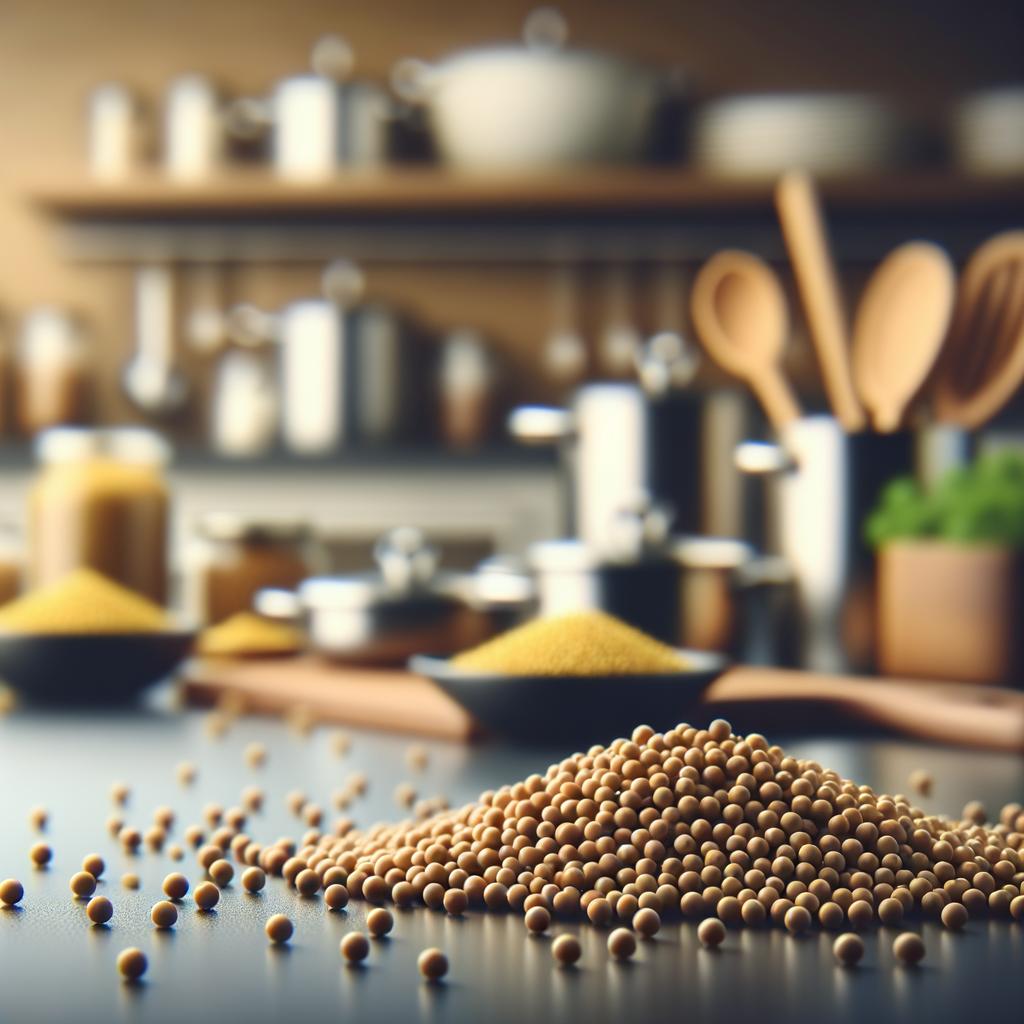Mustard Seeds

Description
Welcome to the world of mustard seeds, tiny spheres of culinary magic that hold a world of flavor within their petite forms. Their appearance is unassuming, coming in shades of yellow or brown, and they are small enough to be held between two fingertips. Yet, when you bite into one, you are met with a robust, tangy flavor that is both spicy and slightly sweet. The texture of these seeds is initially hard and smooth, but once cooked or ground, they release an aroma and taste that can only be described as a warm, earthy pungency. What sets mustard seeds apart from their spice counterparts is their ability to retain their potency over time, giving them a long shelf life that is a boon to kitchens around the world.
Primary Uses
Mustard seeds are a culinary chameleon, used in a myriad of ways across different cuisines. They are often ground into a paste for mustards of various styles - from the sharp Dijon of France to the mellow yellow mustard popular in America. In Indian cooking, they are typically fried in hot oil, a process that tempers their heat and releases a nutty flavor that serves as a base for many dishes. Beyond the kitchen, mustard seeds have also been used for medicinal purposes. They are believed to have anti-inflammatory properties and have been used in poultices to relieve muscle and joint pain.
History
The history of mustard seeds is as rich and varied as their flavor. They have been found in the tombs of Pharaohs, signifying their importance in ancient Egypt. The Romans were known to have ground them into a paste, much like we do today. Over centuries, their popularity spread across Europe and Asia, with each culture adopting and adapting the spice to their own culinary traditions. In folklore, mustard seeds are often used as a symbol of faith and hope due to their small size but potent impact.
Nutritional Information
Despite their small size, mustard seeds are packed with nutritional benefits. They are a good source of selenium, a mineral known for its antioxidant properties. They also contain magnesium, which is beneficial for bone health, and omega-3 fatty acids, which contribute to heart health. Compared to other spices, mustard seeds have a higher content of essential minerals and vitamins. However, like all good things, they should be consumed in moderation as excessive consumption can lead to stomach irritation.
In the end, mustard seeds are a testament to the fact that size does not always equate to significance. These tiny seeds have carved out a large space for themselves in the annals of culinary history and continue to spice up our lives in the most delightful ways.

